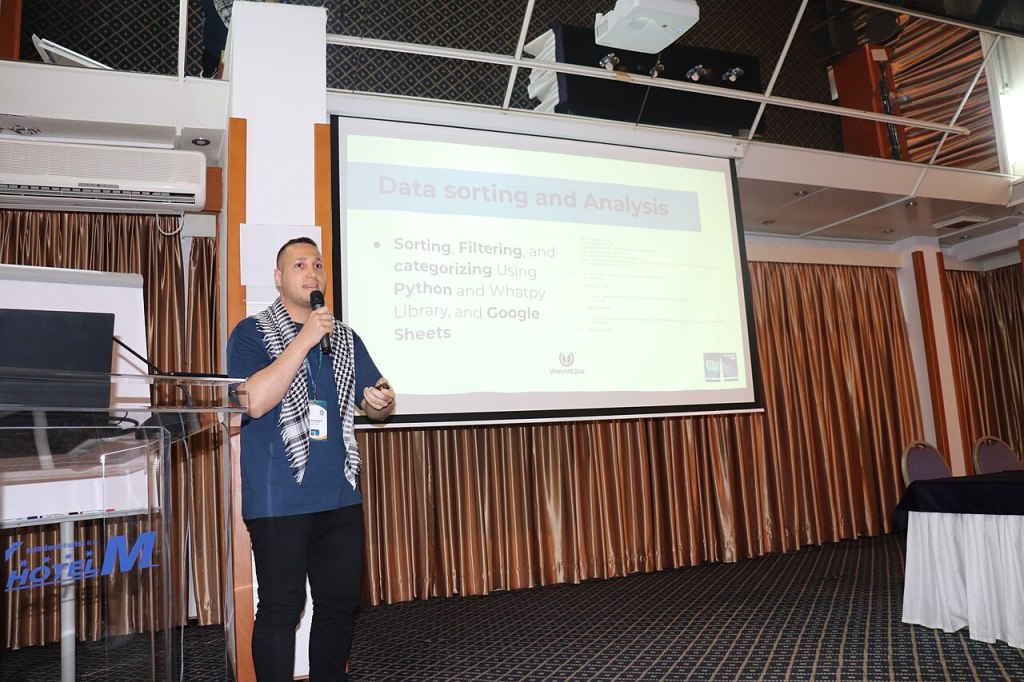Hello, fellow Wikimedians and education enthusiasts! I am thrilled to share my experience from the recently concluded EduWiki Conference 2023, held in the vibrant city of Belgrade, Serbia. From May 26 to 29, I had the privilege of joining this remarkable gathering, where educators, Wikimedians, and passionate individuals from around the world convened to discuss and delve into the implementation of educational programs and the advancements in data science and AI within the Wikimedia ecosystem.
The conference provided a fertile ground for knowledge exchange, interactive discussions, and inspiring presentations. It was a melting pot of diverse perspectives and ideas, with attendees hailing from various countries. In particular, I had the honor of representing Palestine alongside four esteemed Arab Wikimedians: Ibrahim Faraji and Soukaina Abelhad from Morocco, Musab Banat and Areen Abu Rumman from Jordan.
Over the course of the event, numerous insightful presentations and workshops captivated our attention. We had the opportunity to explore successful models for educational program implementation across different nations. These sessions shed light on innovative strategies and effective tools that facilitate program adoption.

Personally, I had the chance to contribute through lightning talks and presentations. I shared my expertise and knowledge in two lightning talks: “Wikipedia Education Program in Palestine: Results, Challenges, and Opportunities” and “How I Improved Students Editing Quality through Analyzing their Questions and Emphasizing Key Areas” These interventions allowed me to showcase the progress made in Palestine’s education program and shed light on the challenges we face.
Moreover, I presented a comprehensive session titled “Enhancing Education Programs and Workshops Quality through Data Collection and Analysis” This presentation delved into the exciting world of data science, exploring its various branches such as data analysis, machine learning, and artificial intelligence. I presented a theoretical explanation of data collection methods within education programs and highlighted the importance of utilizing data science techniques to improve training quality and educational outcomes.
During my talk, I shared practical examples of how data-driven approaches can revolutionize education. These examples included automating personalized messages to strengthen the connection between trainers and trainees, analyzing text data from communication applications to address common questions and improve educational resources, and leveraging pre- and post-questionnaires to tailor workshops to participants’ interests and gauge their effectiveness. Additionally, I emphasized the potential of natural language processing (NLP) and machine learning techniques in supporting volunteers and answering frequently asked questions within the encyclopedia.
I am immensely grateful to Wikimedia Serbia and all the conference organizers for their dedication and hard work in making this event a resounding success.
Finally, I would like to extend my heartfelt appreciation to all the colleagues who supported me in preparing for my presentations and made this experience even more rewarding. Should you have any inquiries about the conference, education programs, or anything related to analysis and data science in education, please feel free to reach out to me through my userpage (User:Mohammad Hijjawi).

Can you help us translate this article?
In order for this article to reach as many people as possible we would like your help. Can you translate this article to get the message out?
Start translation